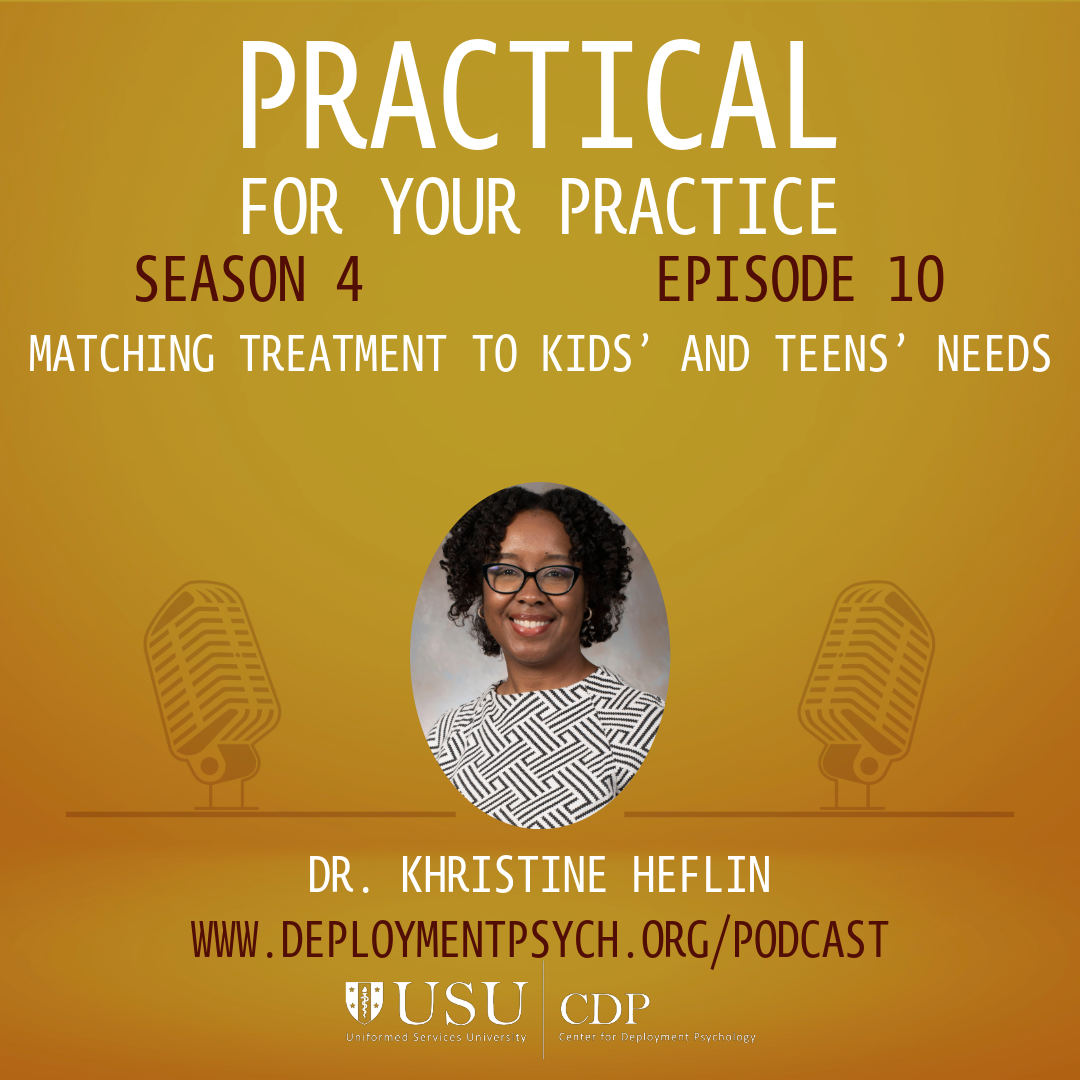 Episode 9, Season 4: MATCHing Treatment to Kids’ and Teens’ Needs
Episode 9, Season 4: MATCHing Treatment to Kids’ and Teens’ Needs
Guest: Khristine Heflin
In this episode, we discuss MATCH-ADTC, an evidence-based psychotherapy for young people struggling with anxiety, depression, trauma exposure, and/or conduct disorders.
Our guest, Khristine Heflin, introduces us to this modular treatment that enables providers to meet each child’s unique needs.
We discuss how this applies to the needs of military children, in particular, and wrap up with actionable intel on how to obtain training in this effective treatment.
 |
 |
 |
Show Notes:
Khristine Heflin is a licensed Clinical Social Worker and has been practicing since 2006. Currently, she serves as a Military Child Social Worker with the Center for Deployment Psychology (CDP) at the Uniformed Services University of the Health Sciences located in Bethesda, MD. In this role, Ms. Heflin works on the Department of Defense Child Collaboration Study and is responsible for identifying best practices for expanding telehealth services to military children and delivering evidenced based training to behavioral health clinicians and community providers caring for military children and families.
Resources:
Clinicians working in military treatment facilities can reach out to Program Lead, Dr. Jennifer Ulrich, to inquire about the MATCH-ADTC pilot training program. She can be reached at: Jennifer.a.ulbricht.civ@health.mil
Non-military providers can pursue training in MATCH on the PracticeWise website: https://www.practicewise.com/
Calls-to-action:
Follow up on training resources if you are working with children and teens (or you want to start).
Subscribe to the Practical for Your Practice Podcast
Subscribe to the Cetner for Deployment Psychology's Monthly Email
Share your EBP questions, successes, missteps, or fears with us on www.speakpipe.com/cdpp4p
This podcast is produced by the Center for Deployment Psychology at the Uniformed Services University of the Health Sciences. The views expressed are those of the speakers and do not necessarily reflect the opinions of the Uniformed Services University, the Department of Defense, or the US Government. In addition, reference to any specific company, products, processes, or services does not necessarily constitute or imply endorsement by the Uniformed Services University, the Department of Defense, or the US Government.
